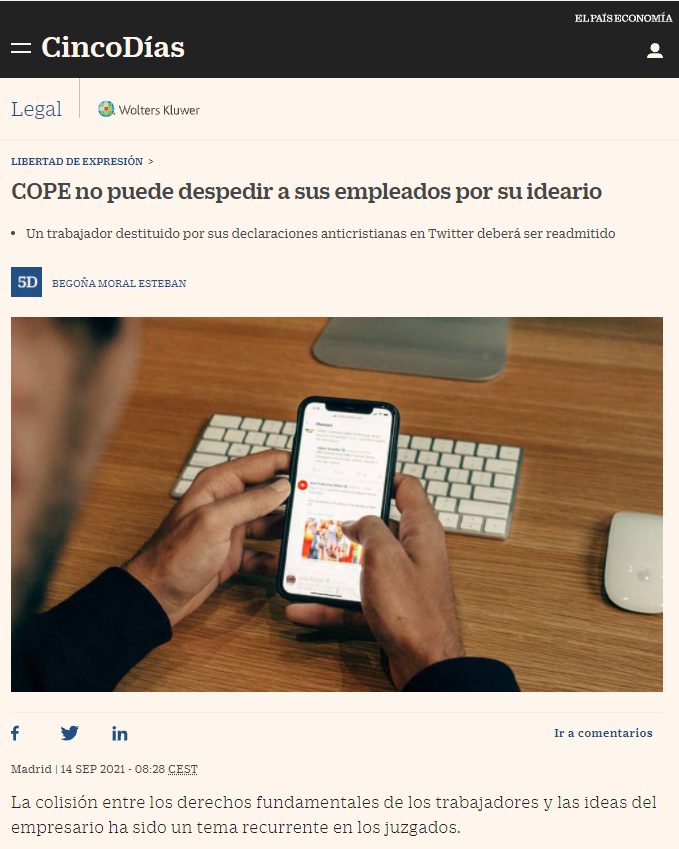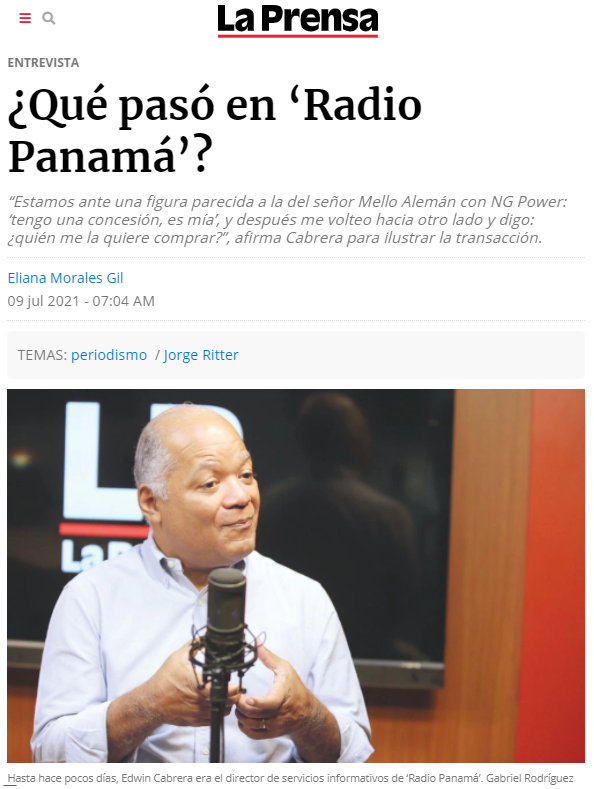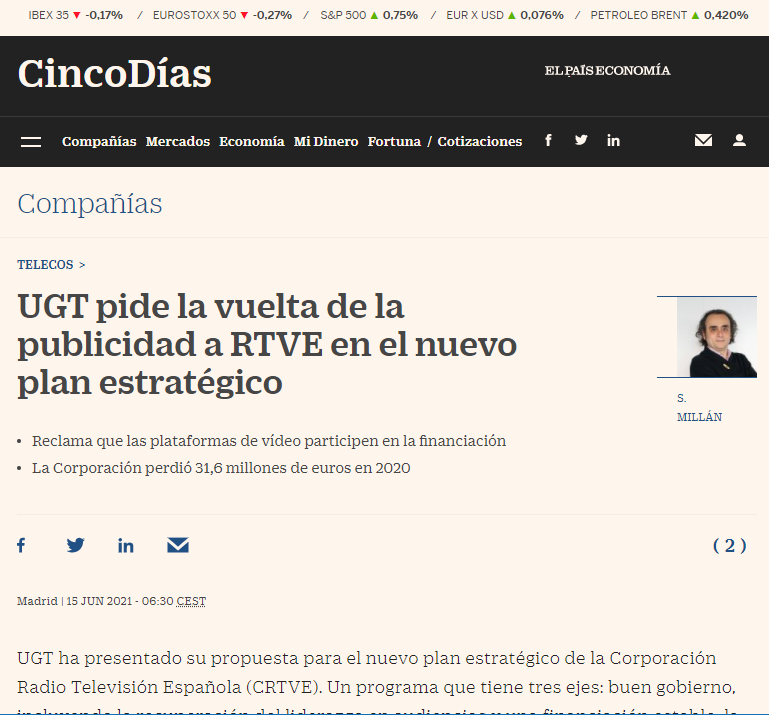
Source
The Superior Court of Justice of Madrid (Tribunal Superior de Justicia – TSJ) annulled the dismissal of a sound technician of Cope (Cadena de Ondas Populares Españolas, owned by the Spanish Episcopal Conference), and ordered the company to reinstate him and pay his back wages. The employee had written a comment on Twitter about a Spanish satirical film where Jesus is portrayed as a homosexual. The court upheld the appeal because an employee is not obliged to share a company’s ideology or decalogue of good practices and cannot be expelled for this reason. Moreover, he was not a journalist, broadcasting news or opinions, but a sound recording assistant; his Twitter profile was personal and did not indicate that he was an employee of the Catholic radio station. Therefore, the followers of the post could not have damaged the company’s image, as they were unaware of who he worked for.


